Forum on the Future of Work: Speakers
Nelson Baker, Georgia Institute of Technology
Goldie Blumenstyk, The Chronicle of Higher Education
Lance Braunstein, Blackrock
Carrington S. Carter, TIAA
Lauren Weber, The Wall Street Journal
Janet Chen, Business-Higher Education Forum
Chris Dede, Harvard University
James DeVaney, University of Michigan
Paul Fain, Inside Higher Ed
Christine Farrugia, Columbia University
Yakut Gazi, Georgia Institute of Technology
Bob Hansen, UPCEA
Neil Irwin, New York Times
Jonathan K. Law, McKinsey & Company
Earl Lewis, University of Michigan
Chris Mayer, The U.S. Military Academy at West Point
Mary Alice McCarthy, New America
Kelly Otter, Georgetown University
Matt Pittinsky, Parchment
Matthew Rascoff, Duke University
Amrit Ray, Pfizer
Gregory L. Robinson, NASA
David Schejbal, Marquette University
LaVerne Srinivasan, Carnegie Corporation
Anne Trumbore, The Wharton School, University of Pennsylvania
Mike Ulica, National Geographic Society
Ross Wiener, Aspen Institute
Jason Wingard, Columbia University
Alford Young, Jr., University of Michigan
Jason Wingard, Columbia University
Dr. Jason Wingard is a leading executive and academic in the areas of organizational strategy, learning, and leadership development. He currently serves as Dean of the Columbia University School of Professional Studies. The graduate School features 16 interdisciplinary master’s degrees including, but not limited to, Applied Analytics, Enterprise Risk Management, Human Capital Management, and Technology Management. In this role, he is responsible for the academic research, programming, and operational performance of the School’s undergraduate, graduate, and executive programs and related centers and institutes. He is also currently CEO of the Education Board, Inc., a boutique management consulting firm specializing in corporate training, executive coaching, and board development.
Prior to Columbia, Dr. Wingard served as Managing Director and Chief Learning Officer at Goldman Sachs, a multinational investment bank. At Goldman Sachs, he oversaw the acclaimed Pine Street Leadership Development Group and Goldman Sachs University, and was responsible for the strategy and implementation of learning and leadership development solutions for the firm's partners, global workforce, and clients.
Previously, he served as Vice Dean of the Wharton School, University of Pennsylvania, where he was the head of Executive Education and oversaw one of the world's largest providers of leadership and management development. He also served as Senior Vice President of ePals, Inc. and President & CEO of the ePals Foundation. ePals, Inc. (now Cricket Media) is the world’s leading provider of interactive/collaborative learning products.
Prior to joining ePals, Dr. Wingard was Executive Director of the Stanford Educational Leadership Institute, at Stanford University, where he led the engagement of executive coaching and applied research practicums for school leaders across the United States. He has also served in a variety of cross-functional executive and consulting roles for organizations including the Aspen Institute, the Vanguard Group, and Silicon Graphics, Inc. (SGI).
As a thought leader, Dr. Wingard has published widely on the topic of strategy, learning, and leadership, including his most recent books: Learning to Succeed: Reinventing Corporate Education in a World of Unrelenting Change (2015); and Learning for Life: How Continuous Education Will Keep Us Competitive in the Global Knowledge Economy (2016). His forthcoming books are The Future of Work: Implications for Workforce Development & Training (2019) and The Future of Learning: Agility and Innovation in the Age of AI/ML/VR. He is also a regular contributor to the Leadership columns for Forbes, Huffington Post, Inc., and TheStreet.com.
Dr. Wingard is a frequent keynote speaker. Recent engagements include the National Football League (NFL), PWC, Proctor and Gamble, Microsoft, and GE.
He currently serves on the Board of Directors for TIDES Network, Roundabout Theater Company, and the Education Board Foundation. He previously served on the Board of Directors for United Cerebral Palsy and the National Center for Fathering.
Dr. Wingard holds a B.A. in Sociology (Organizational Behavior & Social Psychology), with honors, from Stanford University where he was a member of the varsity football and track teams. He also holds a M.A. in Education (Professional Development) from Emory University, a EdM in Technology in Education from Harvard University, and a Ph.D. in Education, Culture, and Society (Corporate Education) from the University of Pennsylvania.
He enjoys classic jazz, road-cycling, and spending time with his wife and their children in New York City.
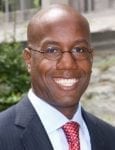
Bob Hansen, UPCEA
Dr. Robert J. Hansen has served as Chief Executive Officer of UPCEA since September 2010. He has led the century-old organization through dramatic changes since that time. He established the Center for Research and Marketing Strategy in 2011 and then established a number of initiatives targeting the association’s unique role in online leadership and management under the umbrella of the Center for Online Leadership: the Summit for Online Leadership, the Online Leadership Roundtable for chief online learning officers, and the UPCEA Hallmarks of Excellence in Online Leadership, which were endorsed by several leading associations serving the C-suite and other organizations in the online space.
Hansen also presided over sweeping changes to the volunteer leadership structure of UPCEA, consolidating a wide variety of bodies into Networks aligned with specific areas of practice in the field of professional, continuing and online education.
Since 2011, UPCEA has grown by 125%. UPCEA, the only organization in the field located in Washington, D.C., has also established itself as an important advocate for policy issues related to non-traditional and online learners.
Hansen previously served as Associate Provost for University Outreach at the University of Southern Maine, a regional public university located in Portland, Maine. Prior to that position, he spent six years at Saint Xavier University of Chicago, first as Assistant to the President & Secretary of the Corporation, and then as founding Executive Director of Orland Park Campus & Off-Campus Programs. Hansen also previously served as Assistant to the Governor for Education in the administration of former Illinois governor, Jim Edgar.
Hansen earned a B.S. in Psychology from the University of Illinois, an M.A. in English Language and Literature from the University of Michigan, and a Ph.D. in English from the University of Notre Dame.

Jonathan K. Law, McKinsey & Company
Jonathan K. Law is a Partner in McKinsey & Company’s New York office. Since joining the Firm in 2001, he has worked with clients in the public sector and in philanthropy on topics related to economic development, higher education, infrastructure, innovative social finance, and organizational effectiveness and operational efficiency. Recent projects have included:
Economic Development:
- Developing the long-range comprehensive strategic plan for one of the largest cities in the US to promote economic growth, equity, sustainability, and resiliency
- Creating and implementing an economic development plan for a Rust Belt city to turn around its struggling economy that has led to the city’s lowest unemployment rate since the recession, $10 billion in private investment, and the creation of 11,000 jobs within 2 years
Higher education:
- Designing the 10-year strategy and investment plan for one of the largest state universities in the country with the aspiration to transform it into a leading public university in the US
- Working with one of the largest state university systems in the US to design the nation’s leading digital degree offerings with the goal of advancing the state’s economy
- Supporting one of the largest urban public university systems in the US to improve its administrative operations, identifying $100+ million to reinvest in academic initiatives
Prior to joining McKinsey, Jonathan has worked at the United Nations, the New York City Economic Development Corporation, and the law firm of Cravath, Swaine & Moore. Jonathan obtained a JD from Columbia Law School and an AB in Social Studies from Harvard College.

Mike Ulica, National Geographic Society
Michael L. Ulica is Executive Vice President and Chief Operating and Financial Officer at the National Geographic Society. He is responsible for all of the global nonprofit’s operational, administrative and financial functions, including serving as the Society’s Treasurer.
Over the course of his more than 12 years at National Geographic, Ulica has served as the Society’s Chief Financial Officer and Deputy Chief Financial Officer. He joined the National Geographic family in 2006 as the Chief Financial Officer for National Geographic Ventures.
Ulica previously worked at Discovery Communications, where he spent 10 years in a wide range of financial roles, including Senior Vice President and Chief Financial Officer of Discovery’s corporate services division and consumer products division. Before working at Discovery, Ulica spent 10 years with Time Life Inc., where he held management positions in finance and operations.
Ulica sits on the board of directors of Ocean Exploration Trust as well as the board of overseers of the Columbia University School of Professional Studies.
He is a graduate of Virginia Polytechnic and State University, where he earned a B.S. in finance.

Matt Pittinsky, Parchment
Matthew Pittinsky, Ph.D. is the CEO of Parchment and co-founder and former CEO of Blackboard Inc. Matthew is on the faculty of Arizona State University and also serves on the Board of Trustees of The Woodrow Wilson National Fellowship Foundation.
In 2012 the Teachers College at Columbia University awarded Matthew with The President’s Medal of Excellence to recognize his impact and innovation in the field of education technology and entrepreneurship. He is a frequent speaker, and has recently been invited to present at NewSchools Summit, Association of American Universities meeting, National Association for College Admission Counseling National Conference and SXSWedu.
Matthew holds a B.S. in Political Science from American University, Ed.M. in Education Policy from Harvard University Graduate School of Education and a Ph.D. in Sociology of Education from Teachers College, Columbia University.

Stephanie Bell-Rose, TIAA
Stephanie Bell-Rose leads the TIAA Institute, which produces original research and insights on issues pertaining to financial security and organizational effectiveness in the educational, nonprofit and public sectors.
Through in-depth research, knowledge-sharing convenings, and its awards and fellows programs, the Institute helps leaders, colleges and universities, foundations, and other charitable organizations understand key trends and developments and make informed decisions that maximize opportunities for success.
Before joining TIAA, Bell-Rose served as a managing director at Goldman Sachs and president of its foundation, and as counsel and program officer at the Andrew W. Mellon Foundation. She is a Trustee of The John S. and James L. Knight Foundation, the Council on Foundations and the Public Welfare Foundation. She is a member of the Council on Foreign Relations, the Executive Leadership Council, the Economic Club of New York, and the Women’s Forum of New York. She is Trustee Emerita of the Barnes Foundation and Honorary Trustee of the American Museum of Natural History.
Bell-Rose received the John H. Niemeyer Award for Leadership in Advancing Educational Equity and Excellence from Bank Street College, and The John F. Kennedy School of Government Alumni Achievement Award. She received AB, JD and MPA degrees from Harvard University.

Carrington S. Carter, TIAA
Carrington, an experienced and accomplished human resources executive, joined TIAA in August 2013, coming aboard as the Senior Director, Human Resources Business Partner for the Retail Products and Services Business. He was responsible for all human capital strategies including the development and execution of an innovative diversity and inclusion strategy for the retail products and services businesses which included the Trust Company, Federal Savings Bank (FSB) spanning talent acquisition; retention and succession planning, leadership development, organizational design, and the administration of performance management and executive compensation processes. He next took on responsibility as the VP, HR and Head of Diversity and Inclusion successfully leading the human resources strategy and execution teams for the recent acquisition of EverBank, now TIAA, FSB. In his current role on the enterprise Inclusion and Insights team, he serves as the Sr. Director, Inclusion and Diversity for TIAA Financial Solutions (TFS) which includes the newly acquired Bank. In his role, Carrington is responsible for the development, execution, and championing of insights based inclusion strategies that help to drive business outcomes.
Before joining TIAA, Carrington had a long career in multiple divisions of ARAMARK, a $16 billion, for-profit global provider of professional management services. Business segments included Conference Center Management, Healthcare, and Clinical Technology, Parks and Destinations and Education. In his last position there, Vice President, Human Resources leading the function for the K-12 Education segment, he led a team of 15 HR professionals responsible for creating innovative driving the people strategy for 15K plus employees and was credited for leading large-scale organizational change that positively impacted both operational efficiency and the top and bottom lines. He has built a long track record of success across various business segment and industries. Over the course of his extensive human resources career, in positions of increasing complexity and scope, he has been recognized as a trusted business partner, strategist, advisor and confidant on a wide range of business and HR-related matters.
Carrington is certified by the Society of Human Resources Management as a Senior Certified Professional (SCP). He is a cum laude graduate of Rosemont College, with a B.A. in Organizational Development. Carrington has served on the Executive Board of the Consumer Credit Counseling Service of the Delaware Valley, a nonprofit organization dedicated to helping families achieve financial stability through financial counseling and education.

Lauren Weber, The Wall Street Journal
Lauren Weber writes about workplace issues and careers for The Wall Street Journal. She has a special interest in stories relating to job security, compensation, the bonds between employers and workers, and the intersection between big economic trends and the on-the-ground practices of employers.
In 2017, Weber authored "Contracted," a series of stories about the evolution of contracting and contingent work. It showed how companies are relying on non-employees for more and more work, including core functions.
Weber arrived at The Wall Street Journal in 2011 after a stint as a private investigator.
Weber has also been a staff reporter at Reuters and Newsday, and her freelance work has appeared in the New York Times, Los Angeles Times, Chicago Tribune, and other newspapers. She is the author of In Cheap We Trust: The Story of a Misunderstood American Virtue (2009), a cultural history of frugality and cheapness in the United States.
Email her with tips and story ideas about the workplace at [email protected]. You can also find her on Twitter at @laurenweberWSJ.

Christine Farrugia, Columbia University
Christine Farrugia, Ph.D. is Director of Research Initiatives at the Columbia University School of Professional Studies where she leads research on the future of work, lifelong learning, and educational access. Previously, she was a research director at the Institute of International Education (IIE) where she led Open Doors, a large-scale annual survey of international educational exchange in the United States, as well as other studies on international academic mobility. She has collaborated and consulted extensively with colleges and universities, higher education associations, and national governments on wide-ranging higher education issues, including admissions and enrollment management, students’ educational and career pathways, strategic internationalization, and data-driven planning. Dr. Farrugia has over fifteen years of experience as an administrator and researcher of higher education and is a frequent presenter and author on higher education topics. In 2014 she was awarded the Harold Josephson Award for Professional Promise in International Education by the Association of International Education Administrators (AIEA). She holds a Ph.D. from SUNY-Albany and M.A. and Ed.M. degrees from Teachers College, Columbia University.

Lance Braunstein, Blackrock
As Head of the Aladdin Product Group at BlackRock, Mr. Braunstein oversees the product, development and operation for Aladdin. He leads a team that drives product management, user experience, software development, platform engineering, and production support.
Prior to BlackRock, Mr. Braunstein was the Chief Information Officer at E*TRADE, where he oversaw the firm's technology strategy and operation. He joined E*TRADE when they acquired OptionsHouse where he was the CIO. Prior to OptionsHouse, Mr. Braunstein spent seven years at Goldman Sachs where he was the Head of Client Platforms and Banking Technology and 10 years at Morgan Stanley where he was responsible for infrastructure and development organizations in Wealth Management.
Mr. Braunstein earned his BA in mathematics from The University of Rochester, an MS in atmospheric science from Colorado State University, and an MBA in finance from The Wharton School at the University of Pennsylvania. He is an executive in residence at Columbia University and a technical advisor to Grand Central Technology and previously served on the board of directors of The Bridge, Earth Day Network, and The Bushwick Starr.
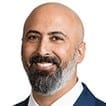
Gregory L. Robinson, NASA
Gregory L. Robinson is the Director for the James Webb Telescope Program in the NASA Science Mission Directorate (SMD).
Previously, he was the Deputy Associate Administrator for Programs, responsible for assessing NASA programs as the projects and institutions for technical and cost effectiveness, quality, and performance. He also coordinates program and project content with the other NASA Mission Directorates, and federal agencies in which SMD has partnerships. SMD has a portfolio of 97 missions in formulation, development, and operations.
Mr. Robinson served as Deputy Center Director at NASA’s John H. Glenn Research Center (GRC), Cleveland Ohio. Mr. Robinson was responsible for planning, organizing, and controlling the effective accomplishment of all missions assigned to the Center. GRC is engaged in a diverse program of research, technology advancement, and project management related to aeronautical propulsion, space power propulsion, cryogenic fluids, microgravity science, expendable launch vehicles, space communications, materials, structures, instrumentation and controls, computational fluid dynamics, and electronics.
Mr. Robinson served as NASA Deputy Chief Engineer (2005-2013); He had primary responsibility and authority for oversight of Agency engineering work, including the design, manufacture, testing, operation, training, and maintenance practices and products. Additionally, he provided policy for and oversight of the readiness and execution of all NASA programs to ensure development efforts and mission operations were planned and conducted with sound engineering and proper programmatic controls.
Mr. Robinson served as the National Oceanic and Atmospheric Administration (NOAA), Acting National Environmental Satellite, Data, and Information Service (NESDIS) Deputy Assistant Administrator, Systems (2011-2012). He led the acquisition, and management of all NOAA satellite flight and ground acquisitions.
Prior to Mr. Robinson’s reassignment to NASA Headquarters in 1999, he spent 11 years in various leadership positions at NASA’s Goddard Space Flight Center in Greenbelt, Maryland.
Among his time with NASA, Mr. Robinson has received numerous individual and group performance awards, including the Presidential Rank, Distinguished Executive; and Meritorious Senior Professionals and Executives Award.
He holds a bachelor’s degree inMath from Virginia Union University; a bachelor’s degree in Electrical Engineering from Howard University; and a Master of Business Administration from Averett College. He also attended Harvard University, Kennedy School of Government, Senior Executive Fellows Program; and the Federal Executive Institute (Leadership for a Democratic Society).

Amrit Ray, Pfizer
Dr. Amrit Ray is the Global President, R&D and Medical, for Pfizer's Upjohn business. Previously, he was the Global President, R&D, where he was responsible for an R&D organization supporting both a rich R&D pipeline and an unrivaled on market portfolio of over 600 medicines.
Before joining Pfizer, Dr. Ray was at Johnson & Johnson where he served as global Chief Medical Officer for pharmaceuticals, and previously as Chief Safety Officer. Prior to J&J, Dr. Ray held positions of increasing R&D responsibilities in Clinical Development, Safety & Epidemiology, and Medical Affairs at Pfizer and Bristol-Myers Squibb.
By background, Dr. Ray is an experienced physician researcher and business leader with a track record of championing medical innovation. Dr. Ray earned Immunology and Medical degrees from Edinburgh Medical School. Following antibody bench research at Sir Joseph Lister Labs, obesity clinical research at the Mayo Clinic, and clinical training at Edinburgh Royal Infirmary, he began his career serving as a hospital doctor delivering patient care in Britain's National Health Service. Dr. Ray's business experience comes as a former McKinsey consultant focusing on corporate finance, and from earning an MBA at Dartmouth's Tuck School of Business.

Neil Irwin, New York Times
Neil Irwin is a senior economics correspondent for The New York Times, where he writes for The Upshot, a Times site for analysis of politics, economics and more. He is the author of “How to Win in a Winner-Take-All World,” a guide to navigating a career in the modern economy, published by St. Martin’s Press.
He is also the author “The Alchemists: Three Central Bankers and a World on Fire,” about the efforts of the world’s central banks to combat the global financial crisis, published by the Penguin Press in 2013. Mr. Irwin was previously a columnist and reporter at The Washington Post, where he led the Post’s coverage of the global financial crisis and the government’s response to it.
Mr. Irwin has an M.B.A. from Columbia University, where he was a Knight-Bagehot Fellow in Economics and Business Journalism, and his undergraduate studies were at St. Mary’s College of Maryland. He has often appeared on television analyzing economic issues, including on “PBS NewsHour” and CNBC.

Kelly Otter, Georgetown University
Dr. Kelly Otter is Dean of Georgetown University’s School of Continuing Studies (SCS). In this role, Dr. Otter oversees professional graduate programs; liberal studies programs at the undergraduate, master’s and doctoral levels; professional certificate programs and custom education; and summer and special programs. Before coming to Georgetown in 2014, she served in academic dean roles at Northeastern University, the University of Pittsburgh, and the College of New Rochelle, and previously held positions in academic administration at New York University. She also taught at each of these institutions in the fields of media studies and interdisciplinary research. Dr. Otter’s professional portfolio comprises academic program development, the design and management of technology-mediated education infrastructures and programs, veterans support services, international education and partnerships, and adult and workforce education. Dr. Otter is a member of the University Professional and Continuing Education Association (UPCEA), the International Leadership Association (ILA), and the National Association of College and University Business Officers (NACUBO).

Chris Dede, Harvard University
Chris Dede's fundamental interest is developing new types of educational systems to meet the opportunities and challenges of the 21st century. His research spans emerging technologies for learning, infusing technology into large-scale educational improvement initiatives, developing policies that support educational transformation, and providing leadership in educational innovation. He is currently conducting funded studies to develop and assess learning environments based on virtual worlds, augmented realities, transformed social interaction, and online teacher professional development. Dede is a leader in mobile learning initiatives and has developed a widely used Framework for scaling up educational innovations. From 2001 to 2004, he served as chair of the Learning & Teaching area at HGSE.

Chris Mayer, The U.S. Military Academy at West Point
Chris Mayer, Ph.D., is Associate Dean for Strategy & Initiatives and an Associate Professor at the United States Military Academy (West Point) and has served as an officer in the United States Army for over 26 years. He also serves as an evaluator and workshop leader for the Middle States Commission on Higher Education and a contributor for the Center for Higher Education Leadership newsletter. He was a Teagle Assessment Scholar with the Center of Inquiry at Wabash College from 2011-2018.
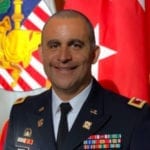
Matthew Rascoff, Duke University
Matthew Rascoff is the Associate Vice Provost for Digital Education and Innovation at Duke University. He was previously Vice President and founder of the Office of Learning Technology & Innovation for the University of North Carolina system, where he worked from 2014-17.
In 2012-13, Matthew launched JSTOR’s first international office in Berlin, where he was also a Fellow of the Bertelsmann Foundation and a strategic advisor to the Robert Bosch Foundation. He previously led product management teams at Wireless Generation, an education technology company (acquired by News Corporation in 2010 and renamed Amplify). In 2011, he built and launched Wireless Generation’s product development center in Durham, North Carolina.
Earlier in his career Matthew helped launch the strategy group at ITHAKA, an incubator of higher education technology ventures (now Ithaka S+R). Matthew’s experience includes Google, where he worked on the Book Search operations team, and Katzenbach Partners, a strategy consulting firm. After undergraduate studies at Columbia University he did graduate work at Bogazici University in Istanbul on a Fulbright Scholarship. He also earned an MBA from Harvard Business School and represented the state of North Carolina as a German Marshall Memorial Fellow in 2013.

James DeVaney, University of Michigan
James provides leadership for academic innovation at U-M. He leads the Office of Academic Innovation (AI) and strategic initiatives that span the university. James provides strategic and operational leadership for AI, including the Academic Innovation Labs (AI Labs), Academic Innovation Fund (AIF), and the Academic Innovation at Michigan (AIM) series. The three AI Labs - the Digital Education & Innovation Lab (DEIL), the Digital Innovation Greenhouse (DIG), and the Gameful Learning Lab (GLL) - operate together at the intersection of curricular innovation, technology, and learning analytics in order to create a culture of innovation in learning. AI is shaping the future of learning at a 21st century research university and redefining public residential education. In his role overseeing AI, James is focused on creating catalysts for academic innovation and fostering personalized, engaged, and lifelong learning within the U-M community and around the world. James is also responsible for U-M’s strategic partnerships with Coursera and edX.
Prior to his role at U-M, James was a senior director at Huron Consulting Group where he co-founded the firm’s global education and digital education practices. Previously, he lived in the United Arab Emirates where he established the firm’s presence in the MENA region. James has worked with and provided strategic counsel to more than 50 universities in more than 15 countries across the Middle East, North Africa, Europe, Australia and North America. In addition to world-class research universities, James has advised startup colleges and universities, new educational ventures, international branch campuses, government agencies, national libraries, museums, think-tanks, social enterprise organizations, and K-12 focused nonprofits.
He is a graduate of the Stephen M. Ross School of Business and the Gerald R. Ford School of Public Policy at the University of Michigan where he earned a Master of Business Administration, Master of Public Policy, and a Bachelor of Business Administration. James has visited more than 250 universities around the world and is focused on opportunities which enable lifelong, personalized, and engaged learning.

Nelson Baker, Georgia Institute of Technology
Nelson C. Baker, Ph.D., is the dean of Professional Education at the Georgia Institute of Technology and professor in the university’s School of Civil and Environmental Engineering. As dean, Dr. Baker leads a multifaceted operation including the Global Learning Center, Georgia Tech-Savannah, the Language Institute, and Georgia Tech’s extensive professional education programs in STEM- and business-related subjects. Dr. Baker also oversees educational outreach programs and serves as the interface between Georgia Tech’s professional education activities and the industries, corporations, government agencies and professional societies that benefit from them. Under Dr. Baker’s leadership, Georgia Tech Professional Education has steadily expanded, now serving more than 36,000 learners worldwide and 2,600 organizations each year.
Dr. Baker’s award-winning work on the impact of technology on engineering students’ learning has generated projects such as multilingual web-based intelligent simulations for problem solving, among others. Leading Dr. Baker’s list of honors is the W.M. Keck Foundation Award for Engineering Teaching Excellence. He has been named an ENR Educator for Construction’s Next Generation as well as an NSF National Young Investigator. He is also the recipient of the Best Paper Award from the ASCE Journal of Computing. Within Georgia Tech, he has received the Outstanding Innovative Use of Education Technology Award and the W. Roane Beard Outstanding Teacher Award.
Currently, Dr. Baker serves as the Secretary General of the International Association of Continuing Engineering Education (IACEE) and is also the President of the University Professional Continuing Education Association (UPCEA). He is the Past-Chair of the Georgia Board of Regents Administrative Committee on Public Service and Continuing Education, and he is an active member of ASEE and ASCE.
Dr. Baker graduated from the Georgia Institute of Technology in 1980 with a B.C.E. in Civil Engineering. He earned his M.S. and Ph.D. degrees in Civil Engineering from Carnegie Mellon University in 1985 and 1989 respectively.

Yakut Gazi, Georgia Institute of Technology
Yakut Gazi, Ph.D., is the Associate Dean for Learning Systems at Georgia Tech Professional Education (GTPE), overseeing learning design and development, technology infrastructure, compliance, and assessment for Georgia Tech's online and distance courses. She has worked at higher education institutions in the United States, Qatar, Turkey, and Spain as an instructional designer, media specialist, IT consultant, faculty member, and technology leader since 1993. Prior to joining GTPE, she was the assistant vice chancellor for engineering remote education at Texas A&M University, providing collaborative institutional leadership to develop innovative, strategic solutions for online, blended, distance, and open programs and courses.
Dr. Gazi also led the distributed learning and classroom technology operations at Texas A&M University-Central Texas. Under her leadership, the institution’s online semester credit hours grew to 40% and the institution was awarded the 2013 Quality Matters Making a Difference for Students Award for online educational quality.
In addition to these roles, she has taught courses in educational technology, foundations of distance learning, psychology of learning, theories of learning, and predictive analytics in higher education.
Dr. Gazi is a Council Member of the International Association for Continuing Engineering Education (IACEE), a member of the Quality Matters Academic Advisory Board, and is on the editorial review board of the Educational Technology, Research, and Development (ETR&D), Journal of Social Media in Society, and the MERLOT Journal of Online Learning and Teaching. She presented at regional, national, and international conferences and is the author or co-author of book chapters, journal articles, and proceedings. She is the co-author of a book titled, “Discourse Indicators of Culture in Online Courses: Designing Learning Environments for Global Success.”
Dr. Gazi has her Ph.D. in Educational Psychology from Texas A&M University, and an M.A. in Educational Sciences and a B.S. in Teaching Chemistry, both from Bogazici University in Turkey.
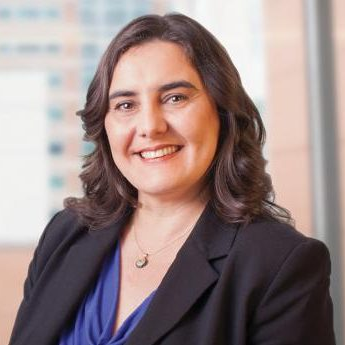
David Schejbal, Marquette University
David works with faculty and senior leaders across the University to expand Marquette online programs throughout the nation and the world. Prior to Marquette, David was dean of Continuing Education, Outreach and E-Learning at the University of Wisconsin-Extension.
David writes and speaks broadly about the future of higher education and how that future is shaped by social, economic, technological, and political forces. In 2012, he was one of the founding members of C-BEN: The Competency-Based Education Network: A National Consortium for the Development of Higher Education Models. He currently serves on the governing board of that group.
David’s academic interests focus on issues of higher education, sustainability, and the environment. His academic background is in philosophy, and he received his doctorate from the University of Connecticut. He was president of the University Professional and Continuing Education Association (UPCEA) from 2015-2016. Presently, he is a member of the Board of Visitors of the Army War College and an Executive Committee member of the Council of Environmental Deans and Directors (CEDD).

Earl Lewis, University of Michigan
Noted social historian, award-winning author, and educational leader, Earl Lewis, is the founding director of the University of Michigan Center for Social Solutions. Also a professor of history and Afroamerican and African Studies, Lewis is president emeritus of The Andrew W. Mellon Foundation (2013-18), one of the premier philanthropies supporting the arts, humanities, and higher education. At Michigan, Lewis and colleagues in the Center will address four core areas of social concern: diversity and race, slavery and its aftermath, water and security, and the dignity of labor in an automated world. His diversity work will continue to showcase the Our Compelling Interests book series, published in partnership with Princeton University Press, which investigates how diversity pairs with democracy to enhance the likelihood of shared prosperity. Prior to returning to Michigan and before leading the Mellon Foundation, he served as the Executive Vice President for Academic Affairs and Provost at Emory University as well as the Asa Griggs Candler Professor of history and African American Studies (2004-2012). Lewis was previously on the faculty at the University of Michigan (1989-2004) and the University of California at Berkeley (1984-1989). In addition to professorial roles and titles (Robin D.G. Kelley and Elsa Barkley Brown Collegiate Professor), he served Michigan as Vice Provost and Dean of the Rackham School of Graduate Studies (1998-2004).
The Tidewater, Virginia, native is an alum of Concordia College-Moorhead, where he graduated with honors in history and psychology (1978), and the University of Minnesota (PhD, history, 1984), which honored him most recently with the College of Liberal Arts Outstanding Alumni Award (2018). Lewis is the recipient of several honorary degrees, is a member of the Council on Foreign Relations, and is a fellow of the American Academy of Arts and Sciences (2008).
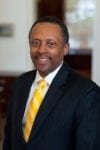
Alford Young, Jr., University of Michigan
Alford A. Young, Jr. is the Arthur F. Thurnau Professor in the Department of Sociology and Department of Afroamerican and African Studies at the University of Michigan. Professor Young has pursued research on low-income, urban-based African Americans, employees at an automobile manufacturing plant, African American scholars and intellectuals, and the classroom-based experiences of higher-education faculty as they pertain to diversity and multiculturalism. He employs ethnographic interviewing as his primary data collection method. His principal scholarly objective has been to explore how the social experiences of African Americans shapes the emergence of what sociologist Erving Goffman referred to as schemata of interpretation. These schemata include worldviews, belief systems, and ideologies. Here his work has centered on exploring the connections between the social location of individuals (i.e., differences in types of residential experiences, work histories, schooling experiences, etc.) and the content of their worldviews and beliefs systems about mobility, the world of work, and other social issues and conditions. His objective in research on low-income African American men, his primary area of research, has been to argue for a renewed cultural sociology of the African American urban poor. Essentially, he argues that behavior is not solely produced and regulated by values and norms, but is also affected by the beliefs, worldviews, and personal ideologies that people construct, adapt, and/or employ in forming what are, for them, common-sense understandings of social reality. More specifically, he explores how those understandings emerge in different form based on individuals' patterns of social exposure to people who are positioned differently in various social hierarchies (racial, ethnic, class-based, etc.).
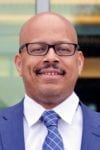
Anne Trumbore, The Wharton School, University of Pennsylvania
Anne Trumbore is a leader in the educational era of e-Learning. As the Senior Director of Wharton Online, Anne is in charge of the design and production of online courses from the University of Pennsylvania. Anne also analyzes data to understand learner needs, initiates and supports research projects, facilitates dialogue with internal and external stakeholders, and helps develop the strategic direction for Wharton’s online efforts.
Since 2004, Anne has taught and designed curricula for online environments at Stanford. Anne also developed innovative interactive teaching techniques, most notably at the Online High School. While pioneering the design and implementation of online courses at NovoEd and Coursera, Anne guided top universities into emerging forms of online teaching. Anne has designed over fifty fully-online MOOCs as well as blended classes in order to create meaningful learning experiences for students.
Anne holds an AB from Brown University and an MA in creative writing from San Francisco State University.

Goldie Blumenstyk, The Chronicle of Higher Education
Goldie Blumenstyk joined The Chronicle of Higher Education in 1988. Now a senior writer, she is a nationally known expert on the business of higher education and higher-education policy. She writes and curates The Chronicle’s weekly Re:Learning newsletter on innovation in and around academe and wrote the recent report on “The Adult Student.” A winner of multiple awards from the Education Writers Association, she has reported for The Chronicle from China, Europe, Israel, and Peru, and has contributed to The New York Times and USA Today. Blumenstyk appears frequently at conferences and on radio and television programs. She is the author of the Washington Post best-selling book American Higher Education in Crisis? What Everyone Needs to Know(Oxford University Press, 2015).
Before joining The Chronicle, she covered City Hall for The Orlando Sentinel. She is a graduate of Colgate University, where she majored in history, and the Columbia University Graduate School of Journalism.
Email Goldie at [email protected] and follow her on Twitter @GoldieStandard.

Ross Wiener, Aspen Institute
Ross Wiener is a vice president at the Aspen Institute and executive director of the Education & Society Program. Ross leads a team of educators and analysts in creating rich learning experiences for education leaders and policymakers and creating resources to assist leaders in improving educational outcomes. From 2002 to 2009, Ross was policy director and then vice president for program and policy at The Education Trust. Ross also served for five years as a trial attorney in the U.S. Department of Justice, Civil Rights Division, Educational Opportunities Section.

Janet Chen, Business-Higher Education Forum
Janet Chen joined BHEF in 2016 as associate director. In this role, Chen engages in project management, including tracking reporting requirements, ensuring that projects meet their milestones and provide deliverables, overseeing working groups, and providing programmatic support networks for BHEF.
Prior to joining BHEF, Chen served as director of programs for the Advisory Committee on Student Financial Assistance, which advised Congress and the Secretary of Education on higher education and student aid policy. During her tenure, she led a study on nontraditional students, which identified the barriers and best practices for these students as well as emphasized the need for a federal-state-institutional-private-sector partnership. Previously, she conducted public policy research and consulting on STEM initiatives. She also supported assessment efforts for the launch of the Harvard College Program in General Education by researching general education curricula and academic program assessment models. Prior to entering the field of higher education, she served as an honors paralegal for the Federal Trade Commission.
Chen earned her master’s degree in higher education from the Harvard Graduate School of Education and her bachelor’s degree in social policy from Northwestern University.
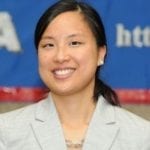
LaVerne Srinivasan, Carnegie Corporation
LaVerne Evans Srinivasan is the vice president of the Corporation’s National program and the program director for Education. She oversees grantmaking and other activities aimed at engaging parents and communities, improving teaching and leadership for learning, advancing innovative learning environment designs, providing K-12 pathways to college and career success, and fostering integrated approaches to innovation and learning in the field of education.
Ms. Srinivasan has extensive experience with senior-level leadership roles in the areas of urban district change, non-profit education reform, and educational technology. As deputy chancellor of the New York City Department of Education from 2003 to 2006, she directed and managed the long-term strategic planning of the Human Resources division and the Student Enrollment Planning and Operations division, and launched the Parent and Community Engagement division. She designed and implemented Project Home Run, a strategically redesigned and streamlined system for recruiting, hiring, and placing teachers and school principals that greatly increased the teacher talent available to high-needs schools and has been replicated nationwide.
In 2006, Ms. Srinivasan became President of New Leaders for New Schools, where she led and managed day-to-day strategy and operations. In addition she oversaw the organization’s growth and expansion into six new urban school systems, its launch and development of the Effective Practice Incentive Community (EPIC) awards program, and the doubling of its network of community and staff.
As President of Time to Know, an educational technology company, Ms. Srinivasan worked to provide teachers with a suite of integrated tools for curriculum planning, classroom management, and student assessment designed to foster deeper learning by students through writing, project work, problem-solving, and creative activities. She later co-founded FieroNow, a technology company created to equip education organizations with meaningful and actionable feedback from their stakeholders, and with the data needed to respond.
Ms. Srinivasan began her career at the law firm Shearman and Sterling LLP. In 1993, she joined BMG Entertainment as a Senior Director, Legal and Business Affairs, rising to Senior Vice President, Legal and Business Affairs, and General Counsel Worldwide. She is a graduate of Harvard College and Harvard Law School. She serves on the boards of School Leaders Network, Peace First, and Young Audiences New York, and was a founding member of the Consortium for Policy Research in Education’s task force on Strategic Management of Human Capital.

Mary Alice McCarthy, New America
Mary Alice McCarthy is the director of the Center on Education and Skills with the Education Policy program at New America (CESNA). Her work examines the intersection between higher education, workforce development, and job training policies. The Center is dedicated to building learning-based pathways to economic opportunity that can begin inside or outside of formal higher education. McCarthy’s writing has been featured in a diverse set of media outlets including the Washington Monthly, The Atlantic, and the Journal on Community College Research and Practice. In addition to her research, she participates in a wide variety of public engagement, technical assistance, and coalition-building efforts aimed at improving postsecondary education policy and practice.
Prior to joining New America, McCarthy worked at both the U.S. Departments of Education and Labor. She led a variety of technical assistance initiatives in the areas career pathways, credentialing, and competency-based education. While at the Department of Labor, she led a technical assistance initiative with nine states and two tribal entities on how to build and support career pathway programs. She co-founded an interagency working group with staff from the Departments of Education, Health and Human Services, and Labor that continues to meet and coordinate federal investments in relation to career pathways. She also wrote policy guidance on credentialing and career pathways and supported the Trade Adjustment Assistance Community College and Career Training (TAACCCT) and Workforce Innovation Fund grant programs, helping design the solicitations and technical assistance activities.
McCarthy also has extensive international experience and she has explored how other countries are tackling the skills challenge. While at the Department of Education, she served as the liaison to a team of OECD researchers conducting a review of postsecondary education and training in the United States. At New America, she has continued her work with the OECD and is currently leading a similar review of Peru’s postsecondary education system, which will be published in the spring of 2016 as part of “Skills Beyond School” series of country studies. She also participates in the International Pathways Colloquium, an annual gathering of researchers and policy advocates from the United States, United Kingdom, Canada and Australia to share learning in the area of career and technical education and workforce development. She has a PhD in political science from the University of North Carolina and an MPA from the Harvard Kennedy School of Government.

Paul Fain, Inside Higher Ed
Paul Fain, News Editor, came to Inside Higher Ed in September 2011, after a six-year stint covering leadership and finance for The Chronicle of Higher Education.Paul has also worked in higher ed P.R., with Widmeyer Communications, but couldn't stay away from reporting. A former staff writer for C-VILLE Weekly, a newspaper in Charlottesville, Va., Paul has written for The New York Times, Washington City Paper and Mother Jones. He's won a few journalism awards, including one for beat reporting from the Education Writers Association and the Dick Schaap Excellence in Sports Journalism Award. Paul got hooked on journalism while working too many hours at The Review, the student newspaper at the University of Delaware, where he earned a degree in political science in 1996. A native of Dayton, Ohio, and a long-suffering fan of the Cincinnati Bengals, Fain plays guitar in a band with more possible names than polished songs.

